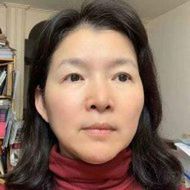Taiwan history textbooks makeover: Eliminating country, people, history and culture?
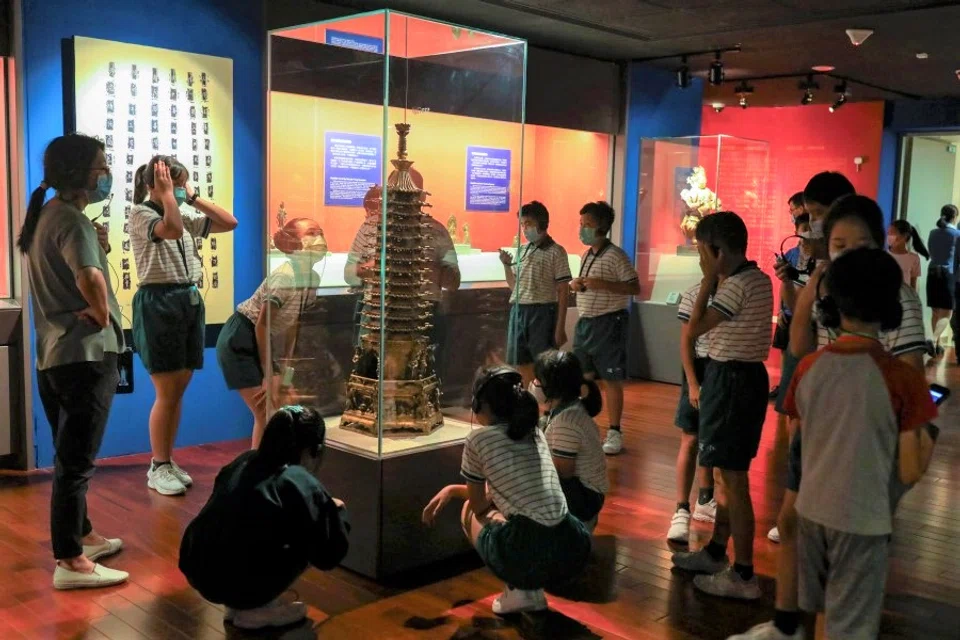
As school reopened in September, many teachers and parents in Taiwan were stunned to find that 2,400 years worth of history from the Shang and Zhou dynasties to the Sui and Tang dynasties had been condensed to just 1,600 words over four pages in second-year junior high history textbooks.
In particular, the well-known period of the Three Kingdoms and the tussle between the states of Chu and Han (the Chu-Han Contention) are gone, while the reign of Emperor Taizong of the Tang dynasty and the rebellion led by An Lushan and Shi Siming (the An-Shi Rebellion, 安史之乱), as well as the story involving Yang Guifei (Imperial Consort Yang Yuhuan), have been omitted. Key historical figures such as Qin Shihuang and Han Wudi are given cursory mention, while important historical books such as Records of the Grand Historian (《史记》) by Sima Qian and the Book of Han (《汉书》) by Ban Gu are not even given a deserved mention.
"Without the people, there are no stories. How dry and boring would history classes be?" - Shen Yu, high school teacher
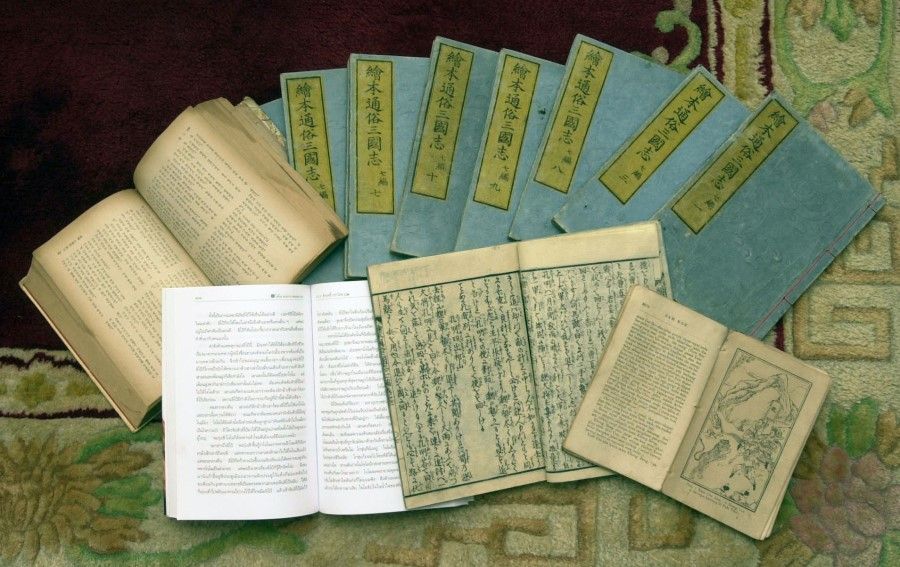
Academics and teachers have harshly criticised such "de-sinicisation" by the education ministry, which has led to the fragmentation of Chinese history, so that it has become messy, disconnected, and incoherent, and also more difficult to teach, due to the lack of a complete historical context.
A high school teacher Shen Yu wrote a letter to United Daily News saying that following these drastic cuts to Chinese history, the glorious era of the Han and Tang dynasties have all but disappeared from the memory of Taiwan's younger generation, along with the names of rulers and generals. "The first civilian emperor Liu Bang and the only female emperor Wu Zetian are gone... without the people, there are no stories. How dry and boring would history classes be?" What meaning would there be in history classes that do not teach the rise and fall of empires, or the gains and losses of individuals?
...one would have to learn about the story of the Three Kingdoms through a mobile game from Japan, and the story of Hua Mulan by watching a movie from Hollywood.
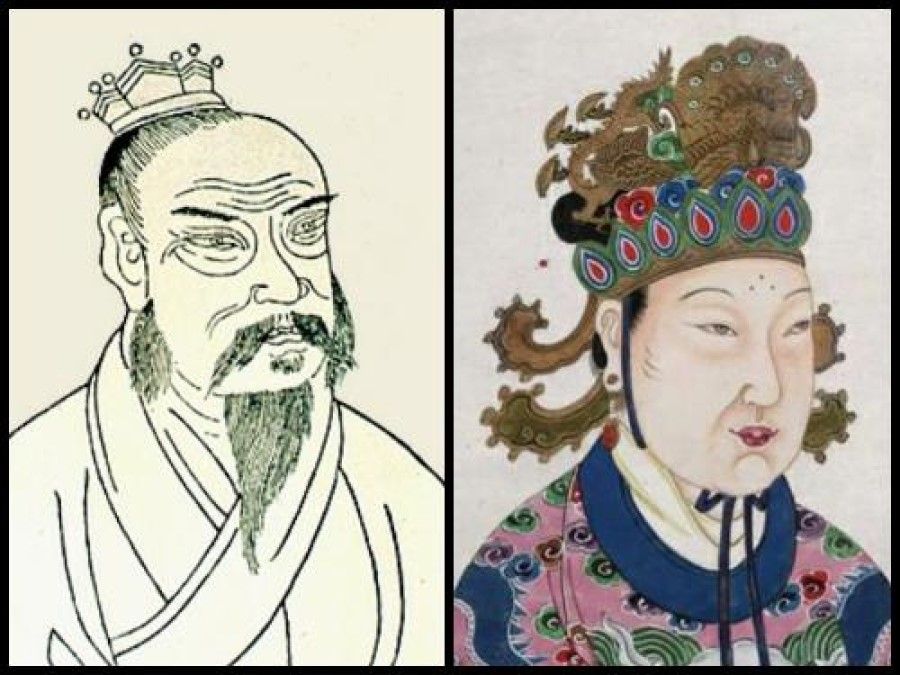
Literature and history are related. Over the past ten years or so, Chinese language textbooks have been carrying less and less classical Chinese, and many Chinese language teachers have to include a lot of supplementary historical facts when teaching ancient texts. One teacher said, "Without historical context, students cannot appreciate the meaning of a literary work. To them, literary giant Su Dongpo would just be a whiny, arty-farty young person."
Minister of Education Pan Wen-chung simply explained that the new syllabus is not about de-sinicisation but to give students a more comprehensive understanding of the world they live in, so that they can become global citizens.
Political programmes sarcastically say that in future, one would have to learn about the story of the Three Kingdoms through a mobile game from Japan, and the story of Hua Mulan by watching a movie from Hollywood. Even common sayings like "speak of Cao Cao and he appears" (说曹操,曹操到, which has a similar meaning to "speak of the devil" and originated from Cao Cao's timely rescue of Emperor Xian of Han from being pursued by renegade generals), or "being surrounded by enemies on all sides" (四面楚歌, literally "songs of Chu coming from four directions", originating from the Battle of Gaixia during the Chu-Han Contention, when Xiang Yu, the king of Western Chu, was surrounded by the forces of the Han Kingdom who sang songs of Chu to demoralise them), would mean nothing to young people. For them, they might even think that praying to Guan Yu (a general and sworn brother of Liu Bei during the Three Kingdoms period, who was later deified as a god of loyalty and righteousness) is the same as praying to Jesus Christ or Allah.
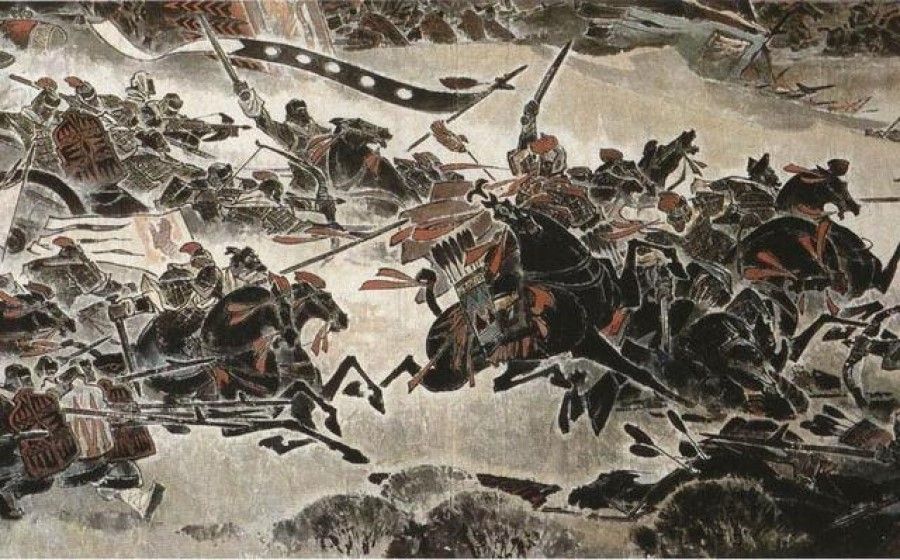
Amid these questions, Minister of Education Pan Wen-chung simply explained that the new syllabus is not about de-sinicisation but to give students a more comprehensive understanding of the world they live in, so that they can become global citizens.
When history becomes politics
The more discerning among us would see that Pan's words are just excuses by the Democratic Progressive Party (DPP) because the changes to Taiwan's history textbooks did not just start today. When the late Lee Teng-hui was president, he took on board former Minister of Education Tu Cheng-sheng's "concentric circles" concept of history, and divided the dynastic chain of events according to "Taiwan history" and "mainland China history", significantly increasing the scope of the former while reducing the latter.
In the early years of Kuomintang (KMT) rule, there was an overemphasis on mainland China history, while Taiwan's local history was neglected. People were familiar with the Yangtze and Yellow rivers in mainland China, but knew little about the Zhuoshui River in Taiwan. And when discussing Taiwan history, inevitably the February 28 incident (where thousands of civilians were killed when the KMT-led Republic of China government violently suppressed an anti-government uprising) and the subsequent suppression of dissidents in the White Terror during the 38 years of martial law would come up; these topics could potentially affect KMT rule and were naturally hushed up.
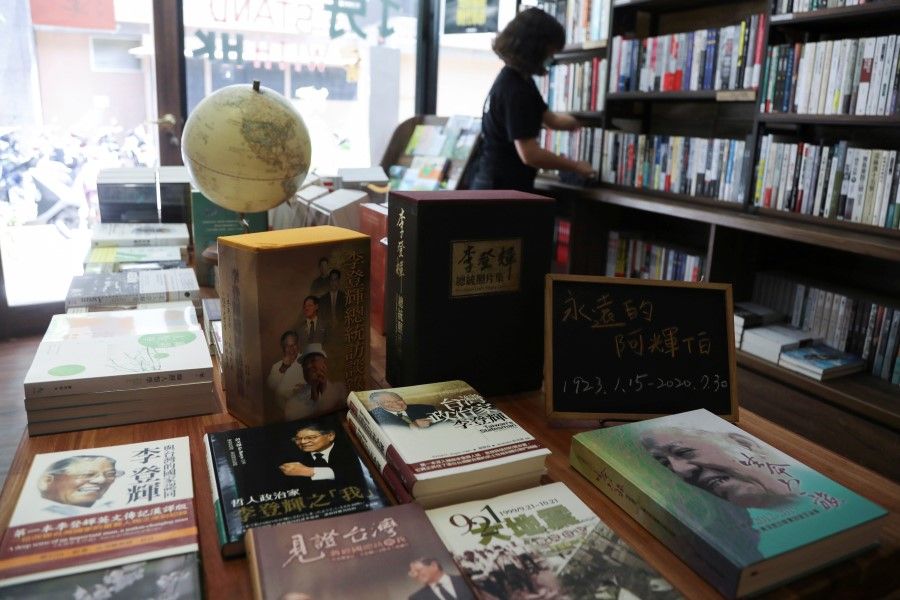
There was nothing wrong with Lee wanting the Taiwanese to know more about their own history, but his quiet de-sinicisation laid the foundation for the call for "two countries". Lee's successor, the DPP's Chen Shui-bian, went even further in cutting the historical ties between Taiwan and mainland China - "One Taiwan one China, one country on each side". Over the past 20 years, the younger generation's view of history has completely changed, evolving into what current President Tsai Ing-wen calls Taiwan's "natural independence" (天然独).
Many pan-Blue supporters did not sympathise with Ma (Ying-jeou), and many among the older generation even condemned Ma as a "traitor of the ages".
The KMT took back power in 2008, and many in the pro-unification "pan-Blue camp" hoped that President Ma Ying-jeou would "rectify" the "de-sinicised" or even pro-Japan textbooks, so that they could once again proudly claim to be "Chinese".
However, Ma lost the opportunity to capitalise on the peak of his popularity, and of having three out of four seats in the Legislative Yuan. He failed to thoroughly reverse the pro-independence reading of history, and only after a close second-term win did he start changing "China" to "mainland China" in textbooks, and emphasising that "comfort women" were forced into sexual labour by Japan, and correcting "receiving Taiwan" to "liberating Taiwan" from Japan. However, the DPP and pro-independence camp stirred up student protests and the syllabus adjustments were abandoned. Many pan-Blue supporters did not sympathise with Ma, and many among the older generation even condemned Ma as a "traitor of the ages".
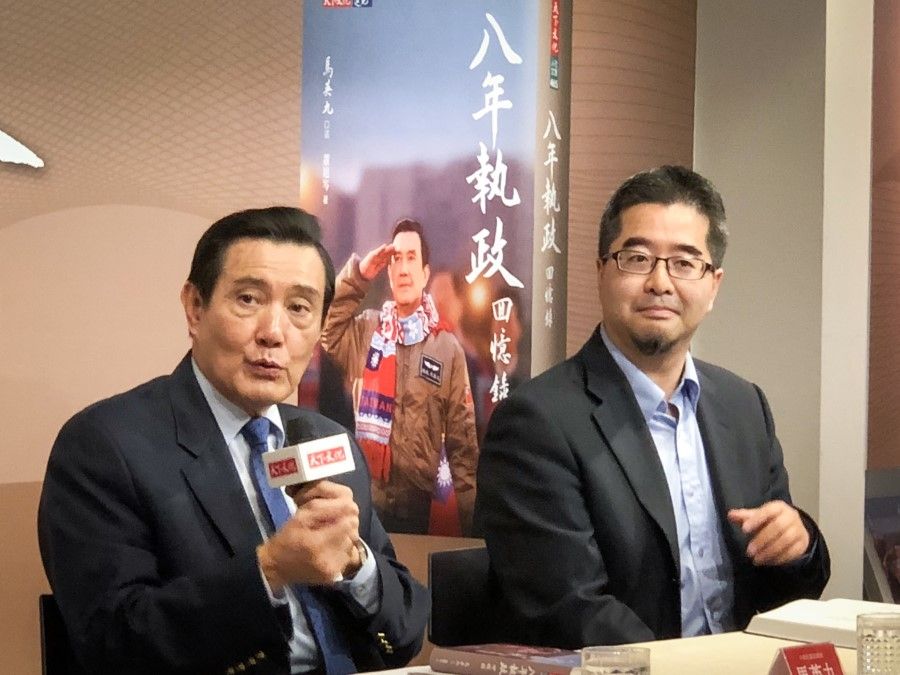
An academic who was involved in the curriculum adjustment once told me that pro-unification academic Wang Xiaobo, who led the syllabus adjustment committee under Ma, could only figuratively "eat sesame seeds while dropping the whole biscuit" - they could only work on little details to try strengthening the links between Taiwan and the mainland. In the end, "making these changes was worse as it was as good as endorsing the 'concentric circles' framework."
Qing dynasty academic Gong Zizhen once said: "To eliminate a country, first eliminate its history. To erase a people, first erase their culture."
On 3 September, at the memorial for Prof Wang, Ma admitted he did not do enough, which put Prof Wang in a tough position. But it is too late for regrets: it is now very difficult for the KMT to win over the young people who grew up with a pro-independence reading of history. But as the opposition, the KMT wants to go with "mainstream sentiment", which means it can only follow behind the DPP and achieve nothing.
Qing dynasty academic Gong Zizhen once said: "To eliminate a country, first eliminate its history. To erase a people, first erase their culture." The new syllabus has already been implemented. The young people growing up learning this "broken" history will not know of the Chinese people's governance and chaos, rise and decline; they will not know what it means to "examine the relationship between heaven and man, and to look at changes through history" (究天人之际,通古今之变). Can they be global citizens?
Related: Us and them: Lessons from ancient China about demonising 'enemies' | Tang dynasty's Wu Zetian: Was she a wise emperor or did she ruin the country? | A return to the physical body and the exuberance of the Tang dynasty | History lessons: Who gets to decide what is humiliating, unfair, right or wrong?
